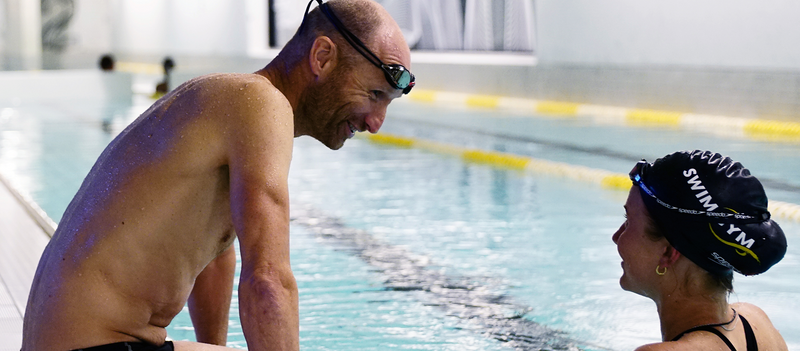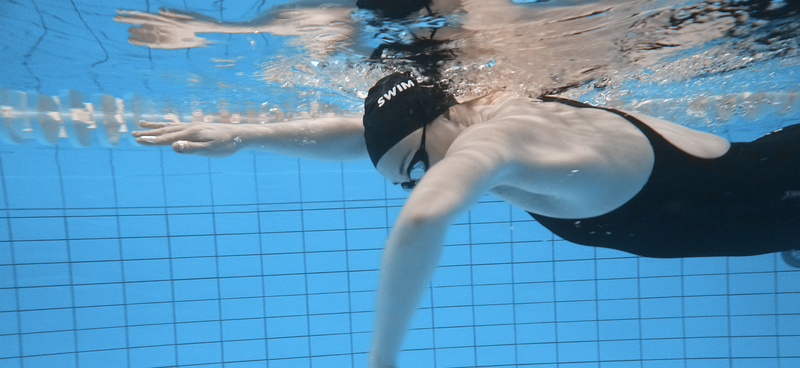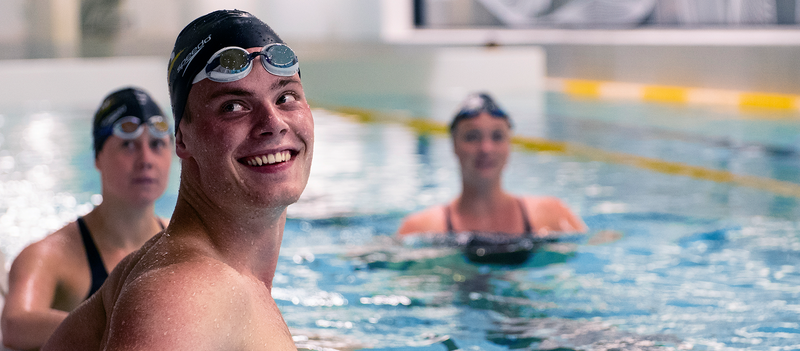Swimming blog - TRAINING 4 things swimming will teach you about life
Are there life lessons in swimming? Swimming is so much more than just about the catch or a good kick. It can also speak meaningfully into our lives. What might it say then? Go slow to stay fast, what you get - might be what you need, take good care of your body and mind, calm down and be grateful for what you have. So, besides being good for your health, here is what swimming will teach you about life.
1. Patience - Pace yourself – Life is not a sprint
Be patient with the things you want to learn and take a long-term view of getting there.
Swimming is very technical and requires lots of practice of drills and skills. This requires patience and no matter your talent, you won’t master swimming within a week. Regardless of your swimming proficiency, you will always have something to learn. This makes swimming amazing yet frustrating. There is always the next step, just like in life. It teaches you to be mindful of the process and not to rush things, as that won’t increase technique, power or speed.
Take the time to learn the skills, practice them as often as you can or at least when warming up. We see swimmers dash off into the lane horizon when warming up. They think that warming up by sprinting is going to make them faster. We have news for them, it won’t. Swimming slow and doing some drills in your warm up - will.
Rushing into things is the nemeses of swimming and life. Pacing is such an important skill that very few rarely master. It is easy to explain but oh so difficult to do. Essentially, pacing is swimming the same time per 100 meters over whatever set it is you are doing. Be it 10 times 100, 5 times 200 or 3 times 400 meters.
Sounds easy doesn’t it? The hard part is starting slower than you think and not blowing up. It takes real skill to keep the same pace in a swim set. Learn to do that and you will start slow enough to go long in training. Great life advice too.

2. You don’t always get what you want – but what you get may be more useful
You want an early vertical forearm (EVF). You see it on the YouTube videos and is spoken of in hushed tones in the dressing room. You have taken our advice of being patient and doing the hinge drill in every warm-up. You are getting faster and enjoying your swimming so much you decide to have a video analysis.
The video analysis comes back showing that you do not have an EVF. You are gutted. All the work, yet the result is not what you wanted. But your swimming has improved dramatically.
Even though you do not have an EVF, the video shows that you have improved your catch substantially from the last time you had an analysis. The video shows that you are pushing much more effectively. Your hand drops and the elbow stays in position, albeit not a high position. Your stroke has become lighter and more efficient.
Coach is happy with the progress. Coach says that your catch reflects your swimming style and gives you a more natural stroke rate. All-in-all you have created something that works well for you. We don’t always get what we want in life because maybe something more useful has taken its place.

3. Your health is worth guarding
Swimming guards the doors of mental and physical health.
As we live longer, we will become more protective of our health. Swimming has been linked to both mental and physical health.
It should be obvious that swimming is a very low impact sport and hence physically good for us at any point in our lives. The buoyancy of water provides relief to joints and muscles from gravity yet workouts can be extremely vigorous. Swimming burns up to 1.5 times more calories than land-based sports. Swimming uses almost every muscle in the body. There is no better exercise to keep you active and healthy throughout your whole life.
Swimming is also good for you mentally. As reported by The American Academy of Neurology in May 2020, “Frequent exercise, such as walking, swimming, and dancing, was associated with less brain shrinkage in older adults. The effect of exercise in older people was equal to four fewer years of brain aging.”
Furthermore, The University of Portsmouth, in a case study, reported that, “…swimming in cold, open water may help those with major depressive disorder to gain control of their symptoms and possibly live medication free.” The report mainly deals with clinical depression but highlights the fact that if cold open water swimming can help people with depression live happier lives, what might it contribute to healthy people’s happiness?
We joke here at the SwimGym pool that exercises like the reverse single-arm freestyle drill make you younger. Science is starting to prove us right.
In addition to the co-ordination element of swimming, the use of both arms means your brain is working pretty damn hard and that is good for overall brain health.

4. Recognising where you’ve come from – being grateful for progress made
It is easy to discount where you have come from in swimming and life. You tend to just see what you can’t do now, but what about the proficiency already under the belt. Are you grateful for what you already can do?
On the pool deck the other day we heard one of our swimmers talk about how disappointed they were for not being able to keep up with the intermediate group. They had recently just moved across from the Novice group. The coach reminded them that they were not even able to swim 25m continuously when they first started swimming. The coach reminded this swimmer of the incredible journey that had already been undertaken. The coach saw the light go on in the eyes of the swimmer.
The swimmer then talked about how grateful they were in being able to swim so many lengths continuously. And what pleasure and confidence it gave them. By the end of telling this to coach, they were no longer disappointed with today, but proud and motivated by thinking of what they had already done.
Don’t take things for granted, it devalues the journey you’ve made already. Think about what you have accomplished, that will motivate you to push yourself further.

And finally...
At the next (virtual) party, when a friend asks, “What has swimming taught you about life?”, you can think back to this article, smile, and be able to give a kick ass reply. One that will make them want to get down to the pool straight away or read this awesome article.
Happy swimming y’all!! 😊
Written by Michael Stolt
